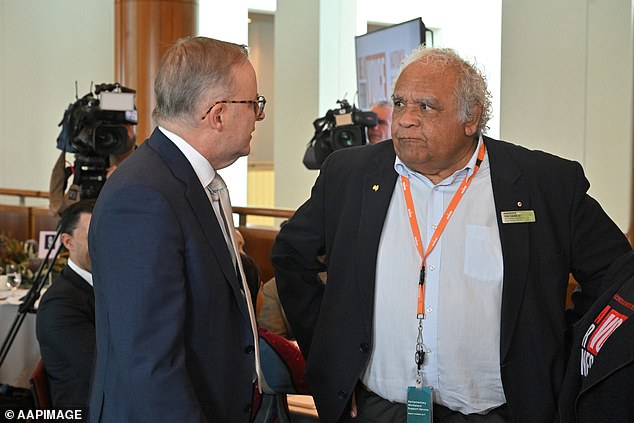For decades, two clans have been locked in a dispute over rightful ownership of a popular northern waterway, which has finally come before the Aboriginal Land Commission.
After years of working through a backlog of claims, the Aboriginal Land Commission heard evidence from traditional owners in a dispute over the Finniss River land claim.
Arising in the late 1990s, the dispute is between six families from the Kungarakany and Maranunggu clans over who has rightful ownership of the popular fishing channel.
The river was created by the rainbow snake that came from northeast Arnhem to Bulgul, where the river meets the sea, Kungarakany and Iwaidja traditional owner Tom Calma told the commission on Monday.
The commission heard how culture and care of the country was passed down through family lines, while trying to resolve who the traditional owners of the river are.
Professor Calma told the commission that his people were buried throughout the country under trees and stones.
He shared stories of how his family, who raised him on grazing land in the region southwest of Darwin, were always connected to the river.
In early 2024, the commission heard evidence from a hearing in the country before Judge Jenny Blokland.
Traditional owner Tom Calma told a commission that a disputed river was created by the rainbow snake. Calma appears with Prime Minister Anthony Albanese
Kungarakan woman Rhonda Calma told the commission how the language in her culture came from ancestors and sacred places, including a billabong, which was the home of her language.
He said displacement had altered the way knowledge was passed along family lines in modern times.
“In the past, when many tribes were killed and poisoned and all those horrible stories during the occupation, particularly our men, were dwindling, that’s when… we made the decision to pass things on to our son,” said Mrs. Calma. . .
“When I was passing information to (the younger ones) I reminded them that they had a role in passing it on.”
He explained how his family painted and danced parts of the river dreams, as custodians from other clans passed them along the riverbed.
Mrs Calma accused the Northern Land Council of failing to act in the best interests of her family.
“The NLC has a long history of not maintaining confidentiality,” he said.
He said Northern Land Council anthropologists during the early years of the land claim attempted to “stack” families and clans into a single claim.
“We decided to end up not giving them (the NLC) information because it wouldn’t be used in the right way.”
The hearing will continue on Tuesday.

